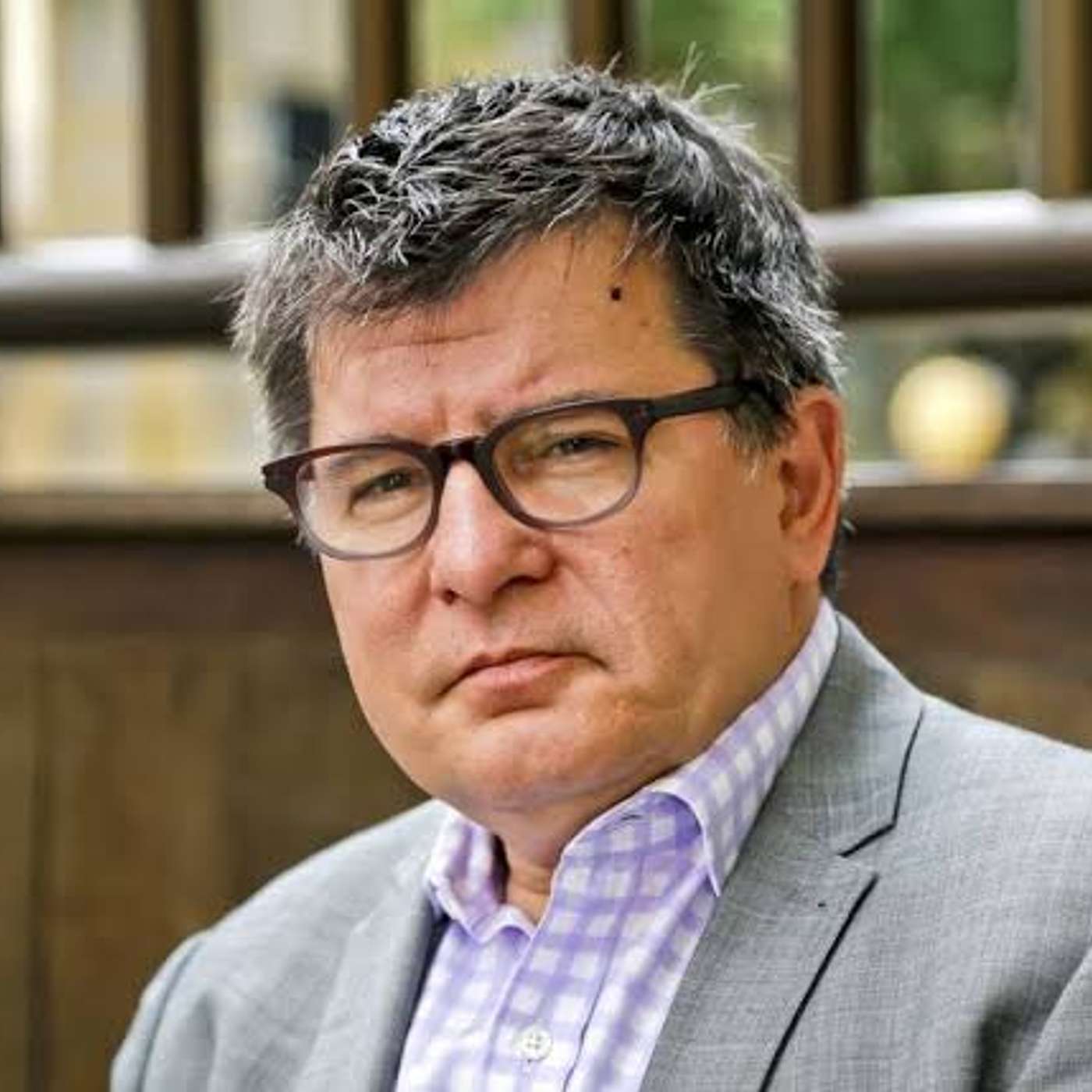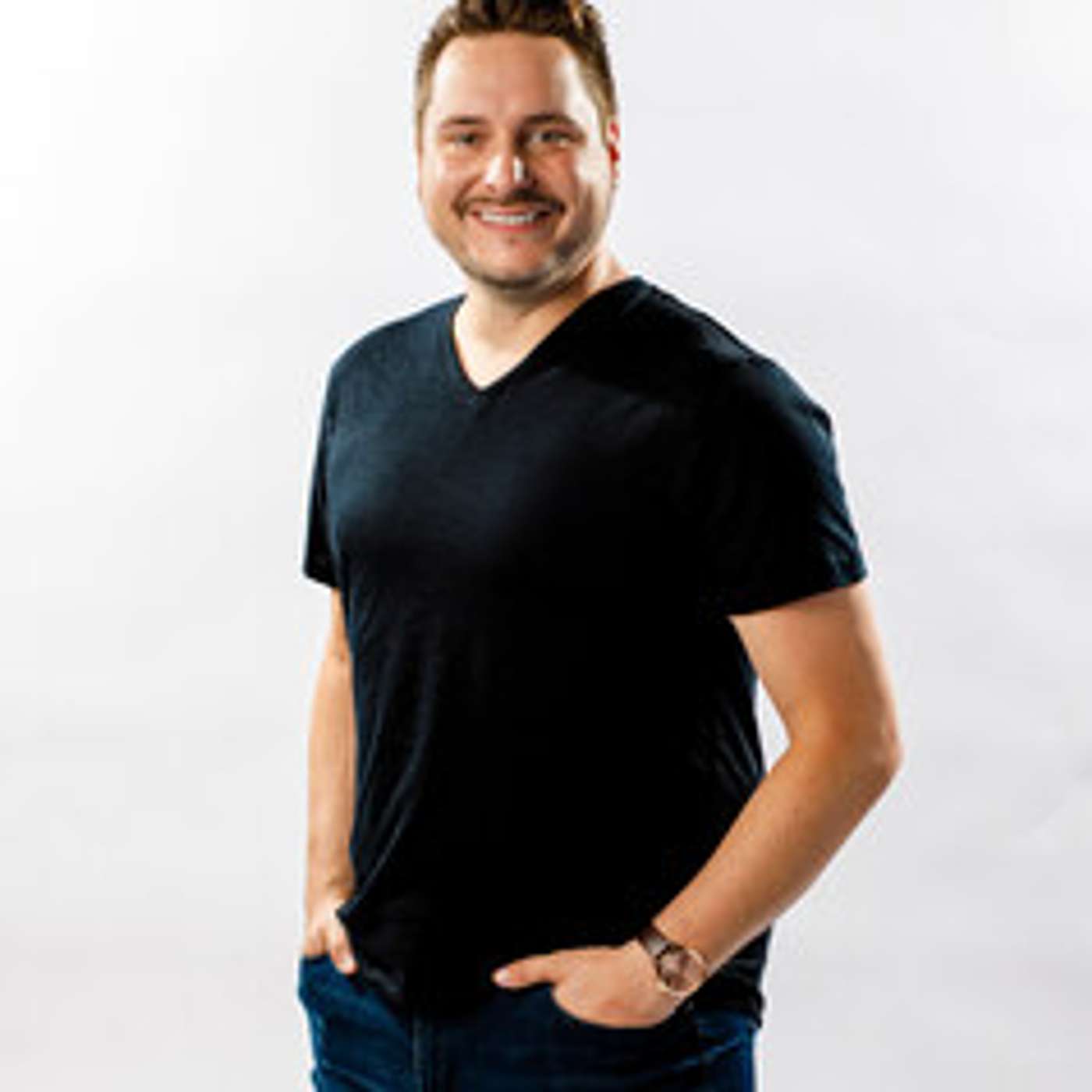Discover Ukraine 242 Podcast
Ukraine 242 Podcast

Ukraine 242 Podcast
Author: Anne Levine
Subscribed: 16Played: 179Subscribe
Share
© 2024 Ukraine 242 Podcast
Description
24/2, February 24th, was the day that Russia began bombing Ukraine at the beginning of its all-out invasion which is now in its eleventh month. Every week Anne Levine interviews someone in Ukraine or from around the world, with a unique perspective on the war. Everyone from a Nobel Peace Prize winner to a military Colonel to an Instagram Influencer turned volunteer for orphaned children is on our show. Interviews conducted by Anne Levine and shows edited by Ursula Ruedenberg.
85 Episodes
Reverse
Can North Korea's military involvement significantly alter the course of the Ukraine war? Join us on Ukraine 242 as Sarah Ashton Cirillo, an American journalist turned combat medic and sergeant in the Ukrainian Armed Forces, provides an unfiltered look into the complex alliances shaping this conflict. Our candid conversation uncovers the unsettling collaboration between Russia and North Korea, including the surge of North Korean troops and outdated yet deadly weaponry on the front lines. Sara...
Journalists Alya Shandra and Bohdan Ben describe what happened on the ground during the Euromaidan Revolution of Dignity. Both participated in this historic grassroots peoples rebellion in 2014 that solidified Ukraine's pivot away from Russia towards Western Europe. Euromaidan with its preceding Orange Revolution is one of the most successful grassroots popular revolts in modern times. As a result. the then-president of Ukraine fled the country, leading to the formation of the government we k...
The second part of an interview with Sarah Ashton Cirillo an American journalist who enlisted as a combat medic in the armed forces of Ukraine. She is an American trans woman and the only American female soldier at zero line, the front-most trenches. This interview comes one year after Sarah first spoke with Ukraine 2 4 2. After being hospitalized from serious injury incurred on the frontline, she describes in deeply personal terms, her difficult transition away from combat areas on the fron...
One year after an interview with Ukraine 2 4 2, the first of a two-part interview with Sarah Ashton Cirillo an American journalist who enlisted as a combat medic in the armed forces of Ukraine. She is an American trans woman. During the 2022 Russian invasion of Ukraine, she was the only transgender journalist and then the only American female soldier fighting at zero line, the front-most trenches. Sarah was hit by a missile on the front. After surgery and extended hospitalization to heal, sh...
Mark Lindquist is a United States Air Force and Afghan war veteran. Since March of 2022, Mark has lived in Ukraine, which he calls his second home. He is on a self-directed humanitarian mission to voluntarily deliver non-lethal aid directly to Ukrainian civilians. After two years of his aid work, he gives an update. He discusses the nature of how this on-going war has developed, what is needed by Ukrainians to fight effectively, food-aid, and reasons why the US and other Western countries may...
Poetry by: Marianna Kiyanovska Karen Khiel Nancy Eaton Vidma Read by Kate Wallace Rogers Music: Anthem by Leonard Cohen Editing by Michael Hill-Levine Editing by Ursula Rudenberg
Ukrainian/ English political scientist Dr. Taras Kuzio discusses ways that Russia is seeking to destroy Ukrainian national identity and replace it with militarization and glorification of the Soviet ethos. He discusses new textbooks being used to influence children, kidnapping of children, persecution and murder of Ukrainian citizens who facilitate Ukrainian civil society, and the contrived hunt for Nazis in Ukraine. Kuzio also discusses Russias historical antisemitism and the resurgence of ...
Ukrainian political scientist Dr. Taras Kuzio discusses the global ramifications of Russias President Putins meeting with North Korean dictator Kim Jung Un in far Eastern Russia, early in September. He describes the coalition that is solidifying to support Russias invasion of Ukraine, including China, Iran and Korea, united against the West and their perception of a US-dominated uni-polar world. Kuzio also discusses how the war is transforming NATOs orientation, how it has affected Russia on...
At the beginning of September, Ukrainian Defense Minister was removed in response to allegations of corruption. Former American Ambassador Daniel Fried discusses this removal along with other internal leadership shake-ups, including the death of leaders of the Wagner military group in Russia as well as how Putin's future is tied to the outcome of his invasion of Ukraine and Russia's patterns of leadership succession. Fried also discusses Ukrainian and Russian actions and positioning on the w...
Athletes are collateral damage in Russia's war with Ukraine, according to Taylor McKee, a researcher committed to analyzing the socio-cultural intersections of sport and society. He discusses how, since 2014, the story of the Russian invasion plays out in theatres of sport as well. In this interview, the discussion focuses on the upcoming Olympic games in Paris, what could play out there, considering the Russian invasion, as well as the general practice of political expression at the Olympic...
This Week on Ukraine 2 4 2: Urban Warfare and other Battle Knowledge – US Major John Spencer TRT: 29 minutes US Major John Spencer is considered the world's leading expert on urban warfare. In February 2022, he wrote The Mini-Manuel for The Urban Defender, a guidebook for everyday people to defend their territory against military aggressors. The manual was posted online by the Ukrainian military and went viral, enabling Ukrainians to help their military to defeat the February 24 attack by Rus...
Historian Ekaterina Malygina describes SUCHO - Saving Ukrainian Cultural Heritage Online " an international initiative by more than 1,500 volunteer historians, archivists, librarians, and humanities researchers whose mission is to provide digital support, server space, equipment, and training resources to their colleagues in Ukrainian cultural institutions. The goal is to support the preservation of Ukrainian culture as hundreds of historic buildings, museums, libraries, archives, and websit...
Susan Mathison tells the story of herself and her three friends in Plymouth, New Hampshire who were aghast at the invasion of Ukraine. Feeling called to do something, they used their collective experience and resources as humanitarians, activists, and businesspeople, as well as their connections with Rotary Clubs here and in Poland and Ukraine, to create Common Man For Ukraine. This multi-million-dollar grassroots network for basic humanitarian aid provides food, warmth, and psychological sup...
The Museum Territory of Terror in Lviv Ukraine was built on the site of a former Jewish Ghetto under the Nazis and a former Soviet prison. While its original mission was to document tragic pages of the 20th century, the museum has changed its focus, since the full-scale invasion on February 24, 2022, to preserving Ukrainian art, museum collections, archives, monuments, and museum buildings which are the targets of Russian destruction. Liana Blicharska, research fellow at the Museum Territory...
This Week on Ukraine 2 4 2: Realities of War: Ukraine Cntr for military & legal Studies Now available in Audioport.org under WEEKLY PROGRAMS TRT: 29 minutes Produced by Anne Levine, WOMR, Provincetown MA Military analyst Oleksander Musiienko speaks about various current realities of the war in Ukraine from a Ukrainian analyst's perspective. He talks about various current events, including the second bombing of the Kerch bridge, Russian mercenary groups, the counteroffensive...
Two stories of encounters between Ukrainians and Russians in the Diaspora. In Abu Dhabi Ukrainians and Russians encounter each other, leading to tensions. In Uzbekistan, refugees who are both Russian and Ukrainian, find each other for solace and mutual help and rebuilding. Julia Tymoshenko is a Ukrainian reporter, communications expert, and marketing executive. She studied at the Abu Dhabi and New York City campuses of New York University, where she studied social and public policy. Her rese...
Britta Ellwanger volunteers for the non-profit organization For Peace and discusses her work currently in Ukraine. She describes how For Peace provides humanitarian aid to civilians and soldiers through local connections and organizing. She has developed an expansive network informing her about what is needed, and her methods for fulfilling these exemplify the power and effectiveness of local and international grassroots organizing. Britta discusses projects such as locating needed vehicles a...
37-year-old Victoria Amelina, one of Ukraine's best-known young writers, died from injuries from a Russian missile strike in the city of Kramatorsk on June 27. In memoriam we rebroadcast her Ukraine 2 4 2 interview with Anne Levine from last May. Victoria Amelina stopped writing novels when Russia invaded Ukraine, saying: in 2022, it became impossible to write fiction (because) reality is so much more intense; it is impossible to invent stories anymore. Prior to her death she worked as a wa...
"There was great optimism about Russia in the 90s as it emerged from decades of authoritarian control. This has gone into reverse since 2014, and its messy geopolitical divorce from the Western world is accelerating." As a teenager, Jonathan Fink was a Russophile. While in college, he lived in Russia to deepen his knowledge. He found that in the 90's, the Russian people were humbled but not scornful of foreigners. Today, he says the Russian climate is much different, and it's part of what ha...
Reporter, communications expert, and marketing executive Julia Tymoshenko speaks about issues Ukraine has with analytical fieldwork by Amnesty International on the Ukraine crisis. She says their position creates harmful consequences for her country. She also shares her experience of living under bombs in Kyiv, and reveals how her organization, St. Javelin, has raised more than 2.5 million dollars for the war effort by selling merchandise of popular memes.























